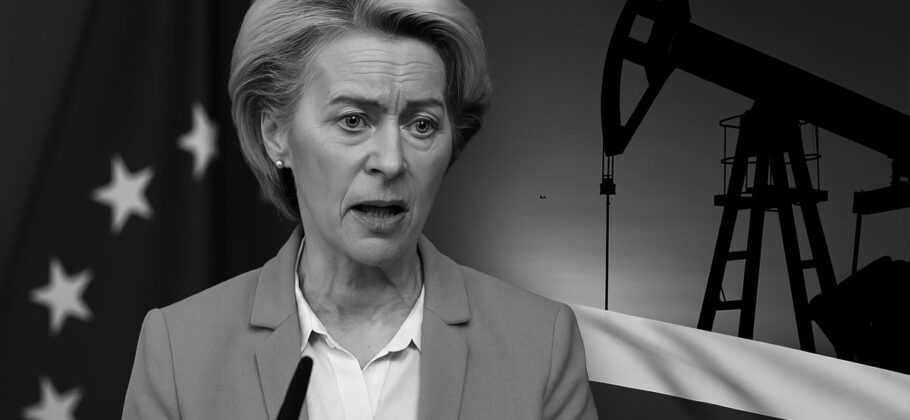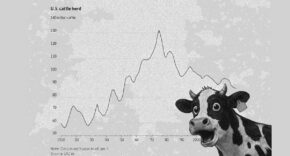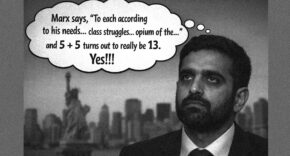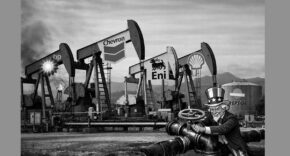The European Union is again weighing how far it can go in cutting its ties to Russian energy. Brussels has announced it will present its 19th package of sanctions against Moscow, following a call between European Commission President Ursula von der Leyen and President Donald Trump. The measures come at a time when Europe’s leaders are caught between their desire to punish the Kremlin for its war in Ukraine and their ongoing dependence on Russian oil and gas.
Trump’s Push for a Hard Line
Trump has been clear in his demands. In a post on Truth Social, he accused NATO allies of “undermining the alliance’s economic leverage” by continuing to buy Russian oil. He added, “I am ready to do major sanctions on Russia when all NATO Nations have agreed, and started, to do the same thing, and when all NATO Nations STOP BUYING OIL FROM RUSSIA. Anyway, I am ready to ‘go’ when you are. Just say when?”
He argued that a full embargo, carried out in unison, would quickly end the war in Ukraine by cutting off Moscow’s financial lifeline. Trump has also urged Europe and the Group of Seven nations to impose high tariffs on countries like China and India that continue to buy Russian oil.
Von der Leyen Promises to Act
Ursula von der Leyen confirmed that the Commission will propose tougher measures soon. “The commission will soon present its 19th package of sanctions, targeting crypto, banks, and energy,” she posted on X. “Russia’s war economy, sustained by revenues from fossil fuels, is financing the bloodshed in Ukraine. To put an end to it, the commission will propose speeding up the phase-out of Russian fossil imports.”
That phase-out is currently scheduled to be completed by 2028, but Trump has pressed for a much faster timetable. Von der Leyen acknowledged that the latest package had been delayed for a week while EU officials traveled to Washington to coordinate with U.S. counterparts.
What the Sanctions Would Do
Reports suggest the package will target six Russian banks and energy companies, as well as new restrictions on cryptocurrency platforms that have been used to move Russian oil revenue. Brussels is also discussing how to accelerate the ban on Russian liquefied natural gas, which still accounts for a significant share of imports in several member states.
The sanctions would also address the flow of refined oil products made from Russian crude and sold back into Europe through countries like India and Turkey. Ukrainian Foreign Minister Andrii Sybiha urged the EU to move quickly, writing on X that “coordinated steps across the Atlantic are essential to deprive Russia of resources for the conflict. Now the focus must be on making the 19th package even tougher.”
Resistance Within Europe
Not every member state agrees with this approach. Slovak Prime Minister Robert Fico has repeatedly criticized the effort to cut off Russian oil, calling it an “idiotic proposal” that would damage Slovakia more than Moscow. He only lifted his veto of the EU’s 18th sanctions package after being promised exemptions and safeguards for Slovakia’s energy needs.
Hungary has also resisted. Prime Minister Viktor Orban has signed long-term deals with Russia and deepened energy cooperation with China. Analysts have warned that companies like Mol Nyrt., which supplies Slovakia’s only refinery, could be crippled if Europe enforces a full embargo.
Former Munich Security Conference Chairman Christoph Heusgen has urged Brussels to push harder on countries like Hungary and Slovakia, arguing that their dependence on Russia undermines Europe’s ability to act.
Putin’s Confidence
Moscow has brushed off the threat of new measures. Russian Foreign Ministry spokesperson Maria Zakharova dismissed the plans as “suicidal sabotage” that would exhaust Europe without changing the war. She told reporters that threats from Washington and Brussels “have no effect and will not change anything.”
Her words reflect a confidence that many in Europe quietly recognize. Russia has redirected much of its oil trade toward Asia and invested in alternatives to Western finance. Even as sanctions multiply, Putin seems prepared to endure, leaving many Europeans wondering whether cutting themselves off from Russian fuel will truly bring the Kremlin to its knees.
Europe’s Dilemma
The EU has already reduced crude imports from Russia from 27 percent before the war to just 3 percent last year. But gas is still flowing, particularly to Hungary and Slovakia, which rely heavily on Russian supplies. Without unanimity among member states, the sanctions cannot be adopted, and that leaves Europe in a constant tug-of-war between principle and pragmatism.
The 19th sanctions package is expected to test the bloc’s unity once again. Ukraine wants immediate action, Trump is demanding decisive moves, and von der Leyen is promising a faster phase-out. Yet the reality is that Europe still needs Russian energy. Despite their will to break Putin, leaders know he has been preparing for this for years, and that even bold sanctions may not be enough. The fear remains that when the moment comes, Europe could back down yet again.
FAM Editor: First, Europe needs oil and gas. Second, Russia has been planning this for at least 10 years, and has other customers in the world it can sell to. Putin is still comfortable. Zakharova’s phrase “suicide sabotage” seems appropriate. The leader of the EU may have the will to carry this through, but the leaders of the individual have to deal with the consequences, and the prospect of a deal is low. If there is an EU sanctions package, we will go through it and let you know whether or not it has teeth.





